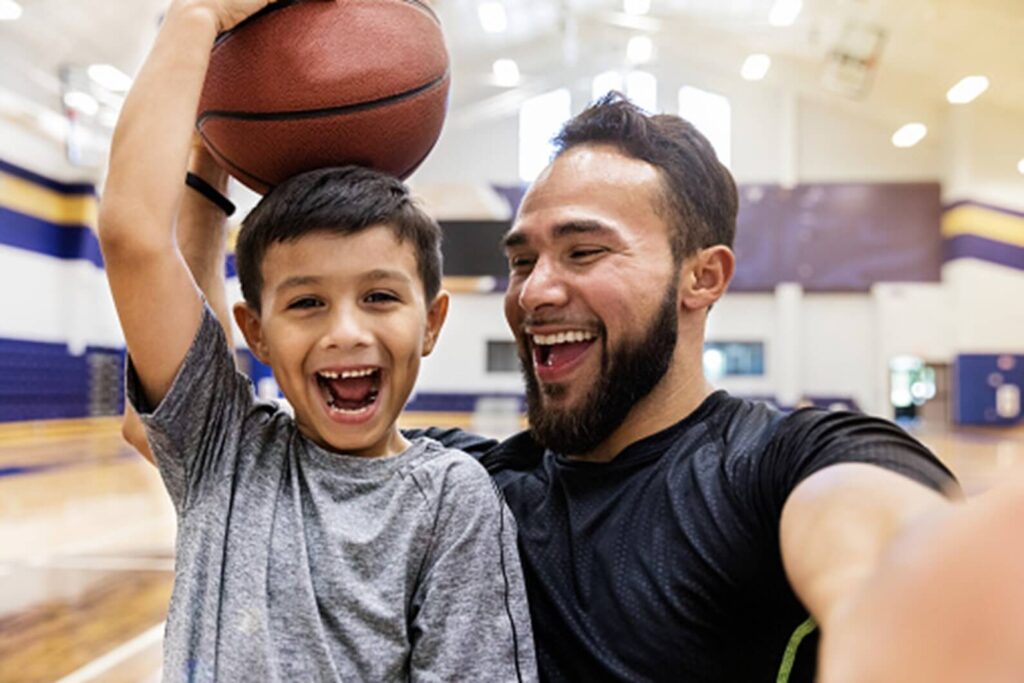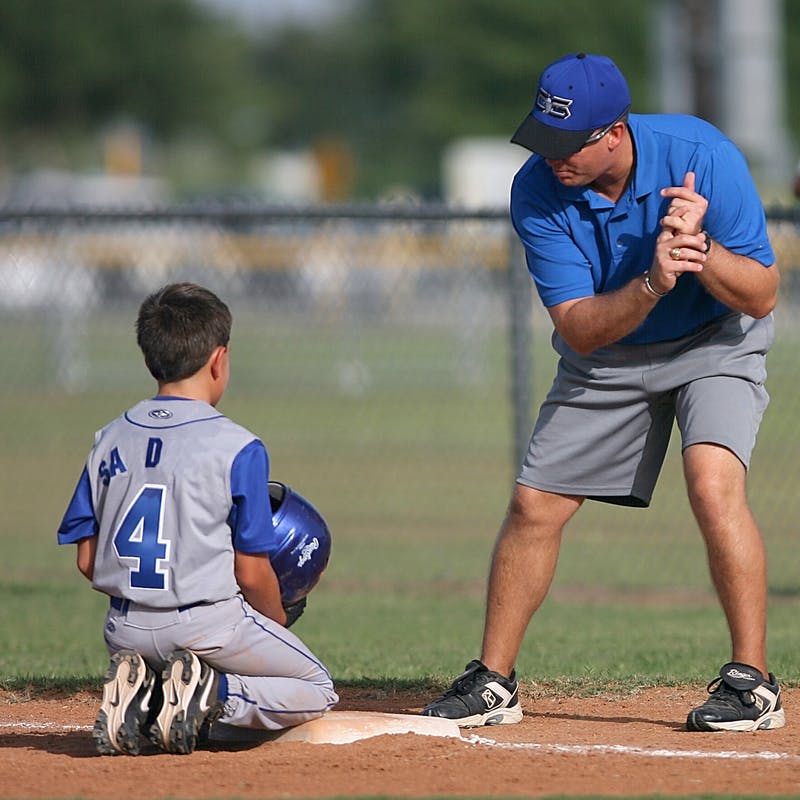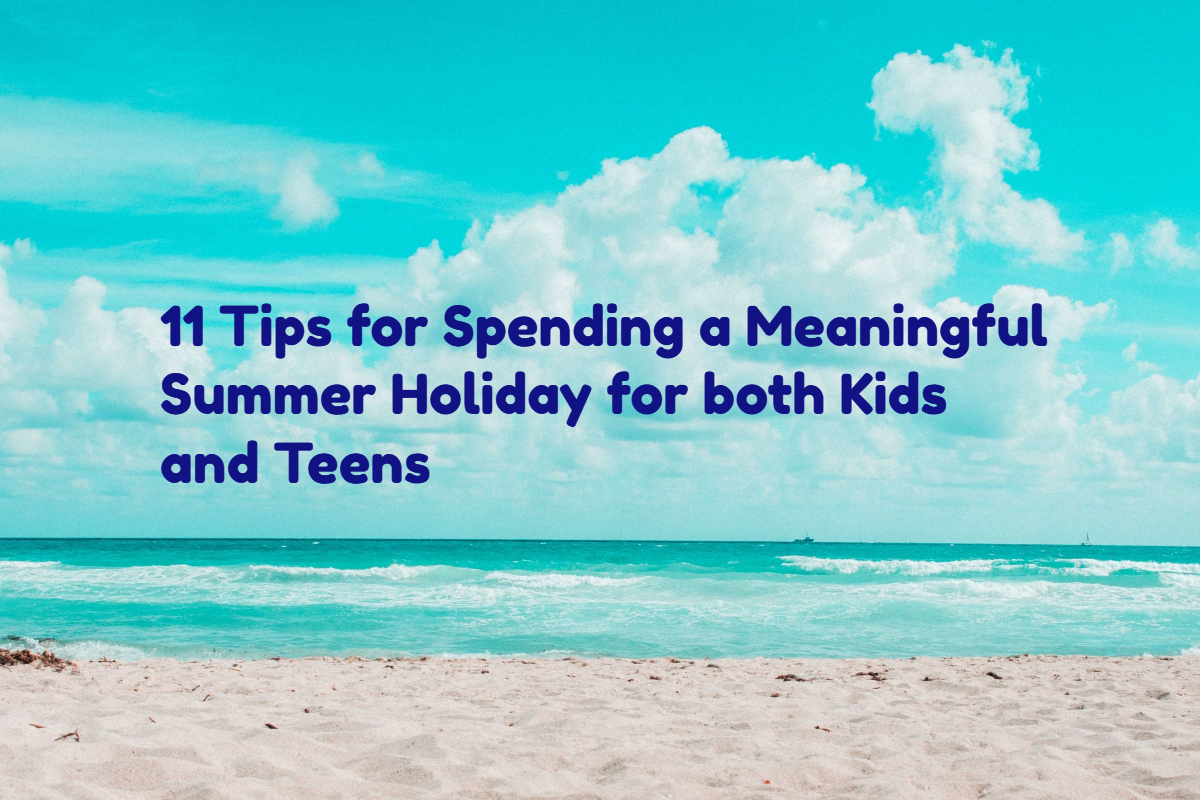The summer holiday is a beautiful break in the middle of the crazy year, with warm weather and extended sunlight. Moreover, parents and kids do not have to think about normal routines. Then how to spend the summer holidays? If you are like my family, both parents are working, and then we do not have the luxury of an entire month or six weeks free for travel or relaxation. With a bit of planning upfront, the summer holiday can also become an opportunity for our kids to learn a new skill and make new friends. Here we summarize 11 tips for spending a meaningful summer holiday for kids and teens.
Table of Contents
1. Discuss with Kids about the Summer Plan and Set a Wish List
Kids tend to lose schedule if they do not need to go to school. They sleep late, wake up later, and everything is postponed automatically behind. Some kids quickly adapt to the new schedules while others do not. I have seen some teenagers spend most time on their phones except sleeping. In this case, planning the summer schedule ahead is a good solution. It requires quite discussion upfront but can prevent many potential misbehaviors and power struggles along the vacation.
Schedule a family meeting to discuss the summer break and especially give your kids the opportunity to express what they want. Make a wish list of all the family members would like to do, from the most time-consuming family camping trip to a simple playdate afternoon, and highlight the necessity.
If kids bring fancy ideas, ask them to research the budget and schedule and discuss them together. I would be very happy to support the idea and lets the kids in charge, they will be highly engaged and motivated for the next time. If you have budget constraints for the summer holiday, share the information openly and honestly, and ask kids to find alternative options that fit the budget.

2. Keep a Morning and Bedtime Routine
The routines could be the same as the school time, or you can vary for plus or minus one hour. Staying late and sleeping in can be fun occasionally, but it is not for every day, especially if you still have toddlers. When they are screaming or tantrum because of tiredness, you will be exhausted. Having a daily summer routine can keep everybody on track.
Post the schedule in a spot where family members can easily reference it. During bedtime, I often brief kids on the next day’s events or plan, such as “tomorrow camp start at 9 am, so you need to get up at 8 am”. Or “we are leaving for Disney on Friday evening, so you need to pack your suitcase for 4 days clothes tomorrow.” Anticipation empowers children and avoids unexpected situations.

3. Make a Detailed Schedule
The daily schedule depends on the kids’ age and needs. Here are my examples of the summer schedule on regular days:
The critical point of making a detailed schedule is an overview of the day. So the kids are not overly booked for different activities or too much free time.
| Time | Activities |
|---|---|
| 8 am – 9 am | Wake up (change clothes, finish breakfast) |
| 9 am – 10 am | Practice music instrument |
| 10 am – 10:30 am | Break |
| 10:30 am to 11:30 am | Reading with snacks |
| 11:30 am to 1:30 pm | Lunch Break |
| 1:30 pm to 2:00 pm | TV time |
| 2:00 pm to 4:00 pm | Swimming or other Sports |
| 4:00 to 5:00 pm | Free time |
| 5:00 to 7:00 pm | Dinner |
| 8:00 pm | Bedtime routines |
4. Themed Each Week
You can also create a weekly theme, for example, the first week is sports week, the second week is friends week, the third week is art or movie week, etc. The theme lets kids know what they should do but is also flexible in days.

5. Do Not Forget “Recovery Days” if You are Traveling
If you are traveling, plan to catch up on laundry, cleaning, and other housework two days after the trip. It gives you time to return to the daily routine…until the next event!
6. Use Screen Times Wisely
Agree on holiday screen time rules together, especially the gaming time. Please encourage them to write online (anonymous or not), create content for social media channels, develop an app, learn to code, or use Vlog to record their day. It is a way for kids to learn a new skill, produce valuable content, and engage with the digital world.

7. Learn a Fun Life Skill
Use the holiday to learn a life skill such as cooking, cycling, trimming a tree, kids need to learn sooner or later. You can choose the lessons either online or face to face.
The golden rules of learning anything are repetition and gradual steps. You may need to help kids prepare for the first few days, and then they can try out independently to learn from experience.

8. Sign into a Sports Camp or Training
There are often summer camps if your kids are into a particular sport, such as football or swimming. Most sports camps are full days over one week, and kids love it. Sometimes they will meet friends from school as well.
If a specialized camp is too expensive, many local libraries, community swimming pools or leisure centers offer kids free or very affordable activities during summer.

9. Take an Art Course
If kids can take the opportunity to learn singing, theatre, photography, dancing, and digital painting, it will significantly help their school activities next semester. Steve Jobs took a calligraphy course to rewrite his life; maybe the next course will inspire your kids.
Related topic:
10. Find Small Jobs
If your kids want to earn money, they can start a small business by offering neighbors to walk the neighbors’ dog, help in the garden, babysit and act as DJs for a birthday party.
Working in the summer, even for a few days, can be an advantageous experience for kids. It can help kids find their hidden talents, such as managing a group of smaller kids, sales skills, or financial skills.
Related Topic:
- Explain Money to Children, 11 Reasons Why it is Useful
- How Young is Too Young to Understand Money?
- Money Lessons for Kids? Values, Saving, Spending and Giving
- 10 Mistakes Parents Make in Teaching Kids about Money
- How Much Should Be a Kids Pocket Money per Week
- How to Teach Kids About Money at Every Age?
- 7 Ways of Teaching Money Concept to Children
- 10 Best Ways to Teach Kids About Money

11. Be a Volunteer
By doing volunteer is to help others who are not able to do it themselves. The volunteering work can connects kids to other holidays, it brings fun and fulfillment to your life. Moreover, you will have a long impact, that almost everyone in the community started to know you.
Final Thoughts from Pragmatic Lifestyle
In the ideal situation, the summer holiday should be a mix of both planned activities and downtime. It often took more for parents during the summer holidays to regulate the kids. Make sure that you look after yourself as well!
About me
Hi, there. I am Lin. Together with my husband and two kids, we live in the beautiful Netherlands in Europe. I am dedicated to self-development, creating quality time for the whole family, and fully supporting kids with their potentials and possibilities with all I have learned from engineering, MBA, and 10+ years of working experience in the energy sector.



6 Comments
Comments are closed.